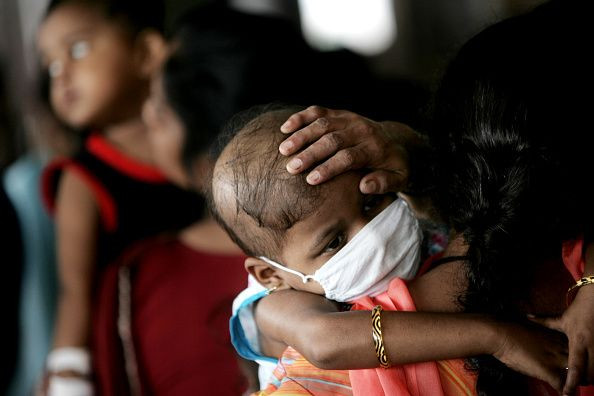Gene-Editing Treatment For Leukemia, Most Common Form Of Childhood Cancer, On Its Way To FDA Approval

On Wednesday, the Food and Drug Administration (FDA) voted to recommend tisagenlecleucel, a gene-editing treatment for patients ages 3 to 25 with the most common form of childhood cancer in the United States, known as relapsed B-cell acute lymphoblastic leukemia (ALL). If the recommendation is accepted, it would be the first-ever gene therapy treatment available to U.S. cancer patients.
Tisagenlecleucel was developed by researchers at the University of Pennsylvania and is licensed to Novartis. The drug uses gene-editing technology to alter a patient’s genes, strengthening the immune system, and helping the patient’s own body fight off the disease. The gene-editing treatment will likely be accepted by the FDA, as the administration is already convinced of the drug’s effectiveness and is now only concerned with possible long-term side effects, The New York Times reported.
“It’s a new world, an exciting therapy,” Dr. Gwen Nichols, the chief medical officer of the Leukemia and Lymphoma Society, which paid for some of the research that led to the treatment, told The New York Times. “This is the beginning of something big.”
To complete the procedure, doctors extract and isolate a patient’s T cells, genetically alter them so that they are better able to target cancer cells, and then infuse them back into the patient, Reuters reported. It is a one-time treatment, takes about 22 days from start to finish, and is expected to cost up to $500,0000.
In a trial Novartis presented to the FDA as proof of the drug’s effectiveness, 52 of 63 patients who received the treatment from April 2015 to August 2016 went into complete remission. Novartis is also testing the drug in diffuse large B-cell Lymphoma (DLBCL), the most common form of non-Hodgkin lymphoma.
ALL is a type of blood cancer that affects immune system cells called B cells. According to WebMD, the diesease begins in the bone marrow but can quickly grow and spread elsewhere. Because the disease affects the immune system, it also makes patients more likely to develop infections. Although it is not clear why some people get ALL, some factors such as exposure to high doses of X-rays or other forms of radiation, and having a genetic disease such as Down Syndrome, may increase the risk of developing this cancer.
If FDA approved, the drug will be used to help ALL patients when all other treatment has failed, however, The NY Times reported that in most cases the majority of ALL patients are cured with standard treatment. In addition, Novartis will initially limit the treatment’s use to 30 or 35 medical centers where employees will be trained and approved to administer it, the company said.
See Also:
Drug Eliminates Cancer From 23% Of Leukemia Patients In Breakthrough Trial
Published by Medicaldaily.com



























